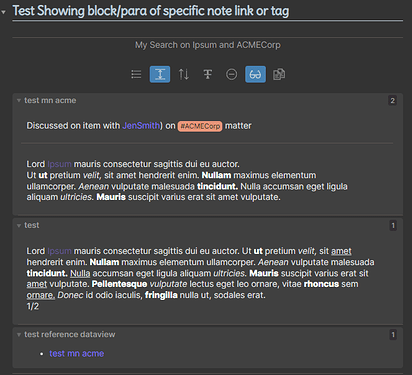hi @aarontimo, i think what u need can be achieved with obsidian query function. but to add useful feature like showing in rendered markdown and controlling some other elements, you can try to use Query Control plugin for that (but u need to install using BRAT)
here’s an example for reference
```query
block: ([[Ipsum]]) OR #ACMECorp
title: My Search on Ipsum and ACMECorp
collapsed: false
context: true
hideTitle: false
renderMarkdown: true
```
